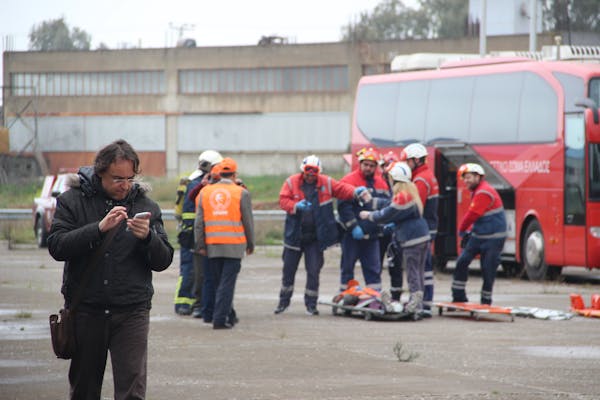
Survivors, sniffing dogs join anti-mine march in Cambodia
Nov 25, 2024
Siem Reap [Cambodia], November 25: Survivors and sniffing dogs joined hundreds of people at Cambodia's Angkor Wat on Sunday for a march against landmines after the US decision to send anti-personnel mines to Ukraine. Participants, including landmine victims and deminers, repeatedly chanted for "a mine-free world" during the four-kilometer walk around the famed temple complex in Siem Reap. The march was held a day before an anti-landmine conference convenes in Cambodia, which is awash in unexploded ordnance as a legacy of civil war.
Hundreds of delegates are expected in Siem Reap to assess progress on the 1997 Anti-Personnel Mine Ban Treaty, which neither Russia nor the United States are party to. The march and conference come after Washington announced this week that it would send anti-personnel landmines to Ukraine in a major policy shift that was immediately criticized by human rights campaigners. In Cambodia, where the relics of civil war continue to claim lives and maim people, landmine victims told AFP they fear the casualties that could come of the decision. "There will be more victims like me," said Horl Pros, a former soldier who lost his right leg to a landmine in 1984. "I am sad and feel shocked."
Washington says it has sought commitments from Kyiv to use the mines in its own territory and only in areas that are not populated in order to decrease the risk to civilians. Ukrainian President Volodymyr Zelensky called the mines "very important" to halting Russian attacks. When asked about the supply of US mines to Ukraine, Vice President of the Cambodian Mine Action and Victim Assistance Authority Ly Thuch said: "We regret that any countries, any people continue to use landmines. Anti-personnel mines are not good for our humanity."
After nearly three decades of civil war from the 1960s, Cambodia was left one of the most heavily bombed and mined countries in the world. Around 20,000 people have been killed there by landmines and unexploded ordnance since 1979, and twice as many have been injured. "I feel it is fundamentally wrong to have a weapon that has a long-term effect on the civilian population," Chris Moon, a former British Army officer who lost an arm and a leg in 1995 while clearing landmines in Mozambique, told AFP in Siem Reap. - AFP
Source: Kuwait Times









